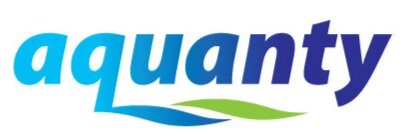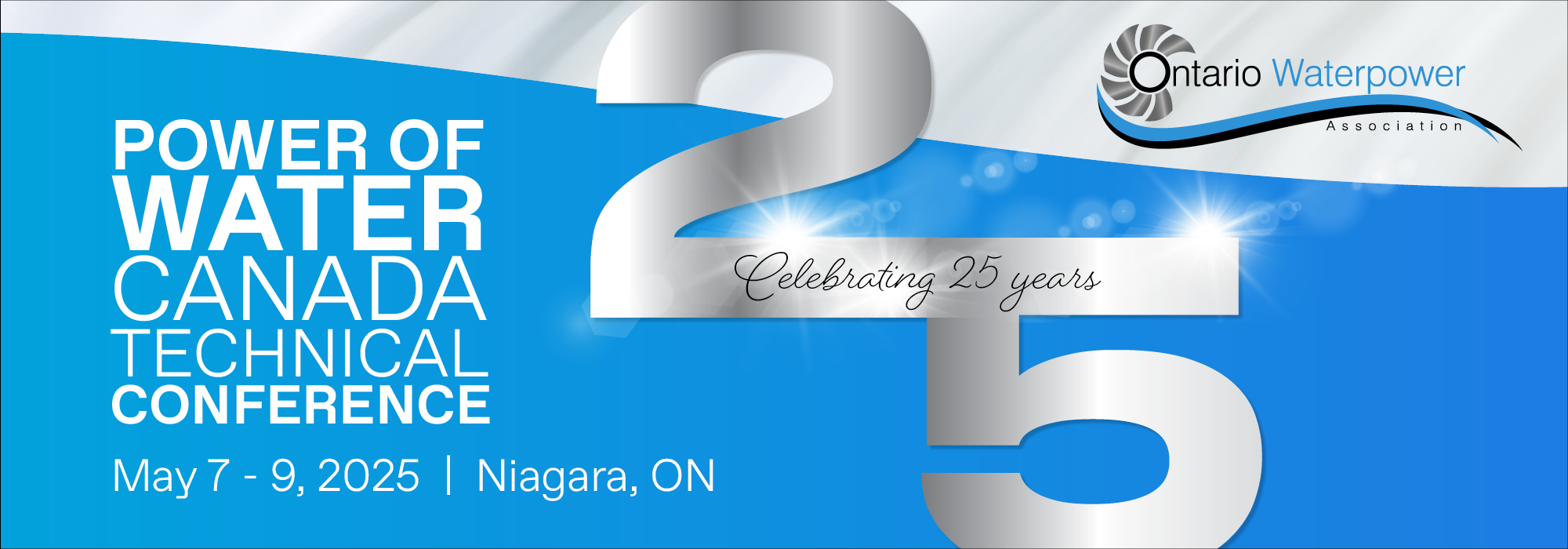
2025 Power of Water Canada Conference
Explore the Future of Waterpower at the 2025 Power of Water Canada Conference!
Join us as we celebrate the 25th anniversary of the Power of Water Canada Conference, the premier event dedicated to advancing sustainable waterpower development. Taking place on May 7 - 9th 2025, this milestone gathering will bring together industry leaders, researchers, and professionals from Canada, the U.S., and beyond to explore the latest innovations in water management and hydropower.
Aquanty is attending for the first time ever, and we’re quite excited to debut our new machine learning based hydrologic forecasting product (HydroSphereAI) for the hydro-electric community in Ontario.
This year’s conference will feature keynote speakers, panel discussions, and interactive workshops, highlighting cutting-edge solutions shaping the future of the water sector. Be part of this landmark event and connect with experts driving sustainable change in waterpower.
Don’t miss this opportunity to engage with the industry’s best and celebrate 25 years of innovation in waterpower!
DATE: May 7 - 9, 2025
LOCATION: Niagara Falls, Ontario
Visit the conference website by clicking the links below, and discover the full speaker list, and registration details.
FOR MORE INFORMATION:
Visit 2025 Power of Water Canada Conference to learn more about the event and stay updated on program details.

Intro to HydroGeoSphere Training Session - May 2025
This online training session is free to attend!
Note: all event times are in eastern (EST/EDT)
Join Brayden McNeill, Aquanty’s Technical Sales Leader, for a 3-4 hour introductory training session to cover essential HydroGeoSphere topics such as:
The basic HGS workflow (i.e. using grok.exe, phgs.exe, hsplot.exe)
Review of model input/output files
The essential components of a *.grok file, how to structure your model inputs
Using AlgoMesh to generate your model grids/mesh
Visualizing results using TecPlot and/or ParaView
Introduce various resources to help you learn to use HGS
e.g. using the Reference Manual, HGS User Community, and other resources to your advantage.
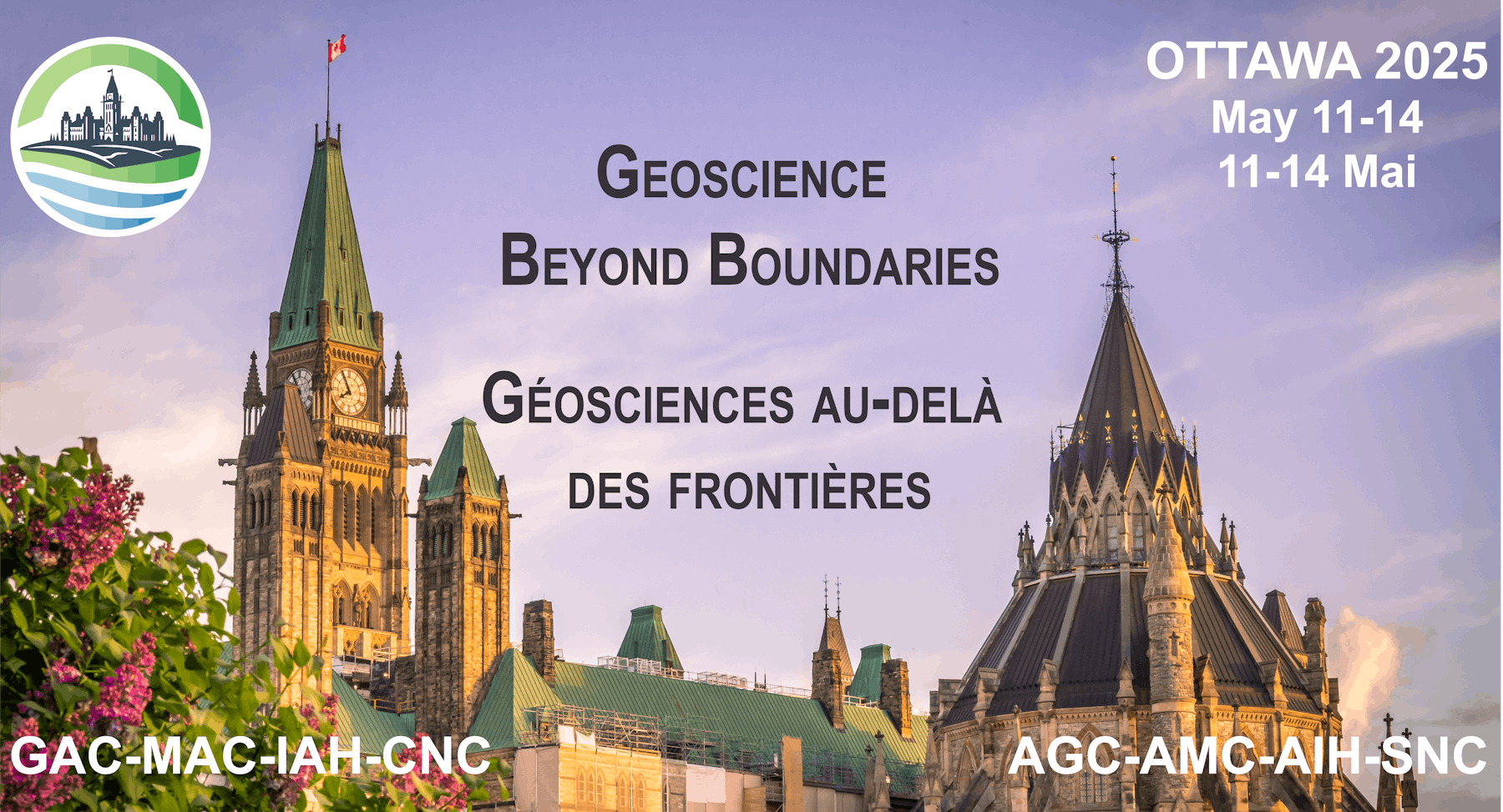
GAC-MAC-IAH-CNC 2025 Conference
Discover Groundbreaking Research at GAC-MAC-IAH-CNC 2025 in Ottawa!
Join us at GAC-MAC-IAH-CNC 2025, hosted at the University of Ottawa, Ontario, from May 11-14, 2025. This premier event will feature a dynamic scientific program including field trips, workshops, short courses, and technical sessions, providing valuable insights into geology, mineralogy, and hydrology.
The Water section will include a number of exciting sessions, with Steve Berg and Steve Frey from Aquanty co-chairing select sessions. Aquanty will also deliver a short course, offering practical expertise and insights into advanced water resource modeling.
ABSTRACTS
Special Session 7
Title: Surface water-groundwater interactions through recharge, discharge, and contribution to ecosystems
Chairs: Emmanuel Dubois; Marie Larocque; Eric Rosa; Steven Berg; Steven Frey
From the infiltration of water at the soil surface to groundwater discharge zones, groundwater resources sustain various anthropic uses and groundwaterdependent ecosystems. Understanding the complexities of surface water and groundwater interactions, especially through groundwater recharge and discharge is crucial for linking groundwater dynamics to these uses. However, global change – through climate shifts, altered precipitation patterns, warming temperatures, and increased land-use pressures – threatens the current balance and impacts human uses and groundwater-dependent ecosystems. Alternatively, Nature-based solutions are increasingly implemented to mitigate the impacts of global change on water resources by leveraging specific ecosystem services. Consequently, a better understanding of the processes involved in the surface water-ecosystem-groundwater feedback loops is urgently needed. This session explores methodological developments and the characterization of processes linked to groundwater recharge, groundwater flow and groundwater discharge, as well as interactions with ecosystems. This session seeks contributions presenting advancements in monitoring, field-based investigations, data-driven analysis, and simulation methods from simple conceptual models to fully integrated numerical models that enhance our ability to track these processes and predict groundwater availability, surface water-groundwater interactions, and ecosystem responses under changing conditions. Contributions on the design, implementation, and performance assessment of Nature-based solutions are also of interest, as they appear to be valuable solutions to mitigate changes in the connections between groundwater and surface water reservoirs and to increase the resilience of groundwater-dependent ecosystems.
Special Session 14
Title: Public groundwater science and policy in Canada: Challenges of jurisdiction, funding and science capacity.
Chairs: Hazen Russell; Christine Rivard; Marie Larocque; Boyan Brodaric; Eric Boisvert
Although groundwater is the source of supply for around 30% of Canadians, and often feeds watercourses, surface water has historically been the focus of most research and studies. Following the creation of Environment Canada (EC) in 1971, freshwater science was seemingly concentrated within the newly funded agency. Environment Canada became responsible for all aspects of groundwater quality, which is intimately linked to water supply. Nevertheless, water has continued to be of concern within 22 federal departments, reflecting its universal importance to Canadian society. Governance of water is vested principally with provinces with the federal government having responsibility in certain circumstances and settings. In response to concerns documented in the 1993 Canadian Geoscience Report, the GSC renewed activity with groundwater aquifer mapping studies and undertook the first regional hydrogeological characterization project in Canada. Since then, the GSC and other branches of NRCan, along with provincial and academic collaborators have been involved in local watershed to regional scale and national groundwater studies. Notable federal influences during this 30-year period on the role and scope of studies was the Framework for Collaboration on Groundwater (2003) and the Senate report Water in the West Under Pressure (2005). Provincially, important programs such as Source Protection in Ontario, PACES (Projets d’acquisition de connaissances sur les eaux souterraines) in Quebec, and Waters for Life in Alberta have invigorated and revolutionised groundwater studies in their respective provinces. This session affords an occasion to review 30 plus years of activity, successes and failures, and consider future roles and opportunities. It also is an opportunity to review and question the necessary roles of provincial and federal government, academic, and NGOs in advancing groundwater knowledge, and data management and dissemination for sustainable water resource management. The session is topical as many of the current concerns and issues around the Canada Water Agency and groundwater resources in Canada and worldwide have emerged cyclically over the past 40 years and are more present today than ever before. The session will include invited keynote presentations from recognized experts
Special Session 16
Title: Harnessing large scale hydrologic models to assess future water security
Chairs: Melissa Bunn; Brian Smerdon; Steven Frey
Earth’s changing climate is nudging the hydrologic cycle in ways that society has not planned for. Predicting how rivers, lakes and groundwater are responding to climate change is necessary for sustainably managing water needs for food production, energy generation, and mineral resource extraction while also maintaining ecosystem function. To meaningfully represent the spatial and temporal variation in climate, hydrologic models typically encompass large watersheds and major drainage basins. At these scales, processes like the intrinsic link between groundwater and surface water is challenging to represent and often poorly resolved. This session will explore the development and application of large hydrologic models for climate change assessment, with a focus on regional scale integration of groundwater and surface water. Through the session, we seek perspectives on: (1) how groundwater is represented in regional scale hydrologic and water resource assessments, (2) the importance of groundwater for large scale water management in different physiographic settings, and (3) ongoing efforts to address conceptual model gaps in the application of regional scale models towards water management and security objectives.
Short Course
SCW-B3 - HydroGeoSphere Short Course: Introduction to Fully-Integrated Hydrologic Modelling
Organizer: Brayden McNeill
Contact: bmcneill@aquanty.com
Join the Aquanty team for a two-day intensive course which explores the complete integrated hydrologic modelling process using HydroGeoSphere (HGS). This course consists of various lectures and exercises to explore topics such as: (i) the benefits of integrated hydrologic modelling; (ii) the governing equations that control flow in an HGS model; (iii) use of supporting software for model mesh generation and results visualization; (iv) model parameterization and conceptualization of boundary conditions; (v) numerical solution techniques and recommended settings optimal convergence and improved runtimes; and (vi) model convergence troubleshooting, model calibration and more. Participants will receive a temporary license of HydroGeoSphere (30-day), a temporary license of AlgoMesh (2-week), a copy of all course content including lectures (PDF) and exercises, and the opportunity to network with other HydroGeoSphere users and the software development team.
DATE: May 11-14 2025
LOCATION: University of Ottawa, 75 Laurier Avenue East, Ottawa, ON, Canada, K1N 6N6
The conference provides an opportunity for watershed district staff and board members to engage with industry professionals, decision makers, businesses, and each other. It provides a place for celebrating successes, community building, staying connected to new and emerging practices, education, and advocacy for the protection of our water resources.
Visit the conference website by clicking the links below, and discover the full speaker list, and registration details.
FOR MORE INFORMATION:
Visit GAC-MAC-IAH-CNC 2025 to learn more about the event and stay updated on program details.
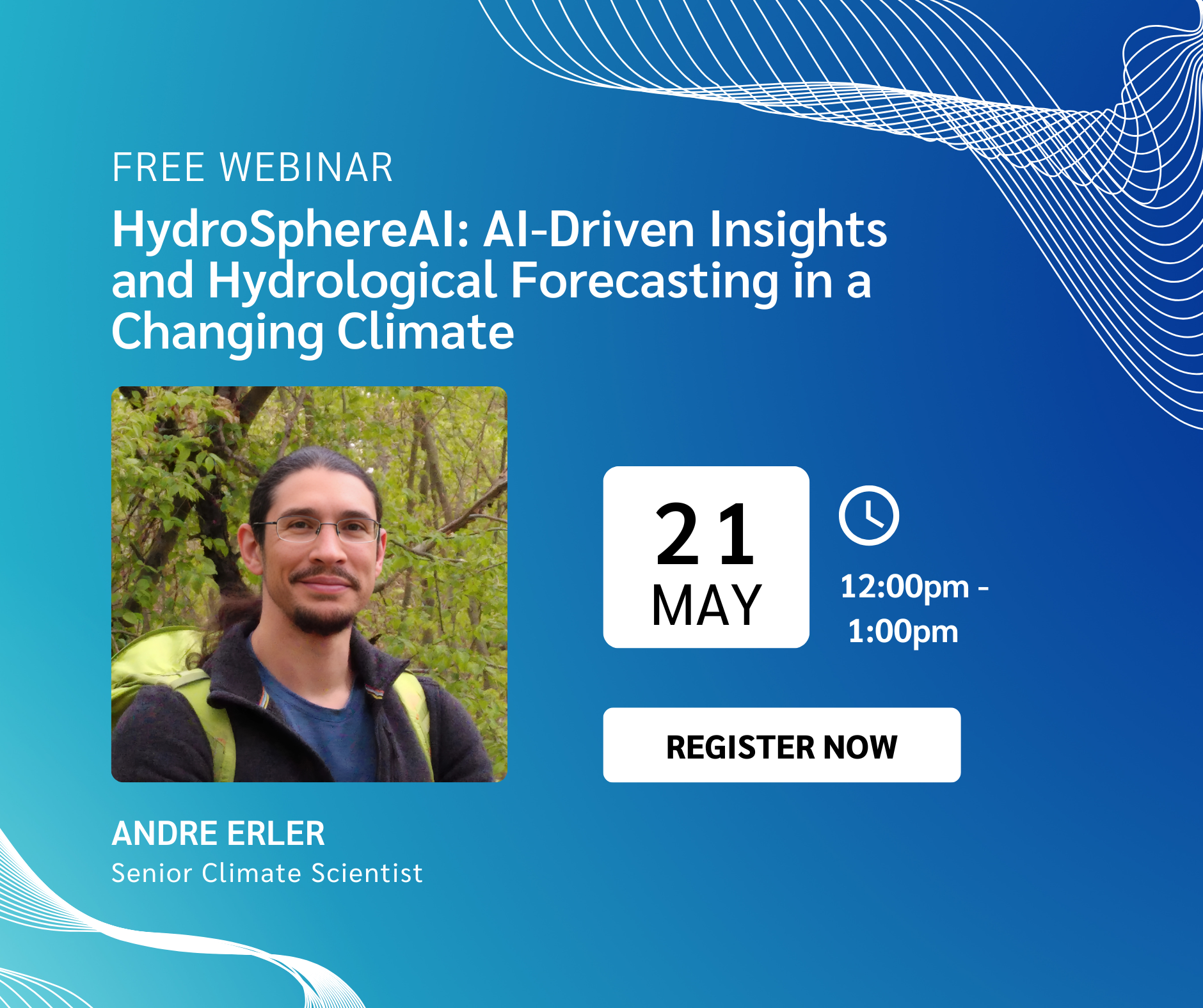
Webinar - HydroSphereAI: Machine Learning-Driven Insights and Hydrological Forecasting in a Changing Climate
Join us for an insightful webinar on HydroSphereAI, where we explore a cutting-edge Machine Learning (ML)-driven approach to hydrological forecasting. Learn how our models improve streamflow predictions, even in ungauged basins, and how real-time data integration enhances forecasting accuracy. We’ll also demonstrate the HydroSphereAI platform and its practical applications for water resource management.

CWRA 2025 National Conference
Join Us at the CWRA 2025 National Conference in Penticton, BC!
Mark your calendars for the CWRA 2025 National Conference, taking place May 25-29, 2025, in Penticton, BC—on the traditional territories of the Okanagan (Syilx) People in the Okanagan Watershed.
With the theme “Living Between Waters – Connecting Water & Resilience,” this year’s conference will focus on collaboration, Indigenous rights, and the role of municipalities, governments, and industry in advancing water resilience.
The event will feature technical sessions, workshops, and panel discussions highlighting practical solutions for shared water management across jurisdictions and watersheds. Attendees will explore strategies for building partnerships, Indigenous-led stewardship, and ensuring a sustainable water future.
DATE: May 25 - 29, 2025
LOCATION: Penticton, BC
Visit the conference website by clicking the links below, and discover the full speaker list, and registration details.
FOR MORE INFORMATION:
Click here to learn more about the event and stay updated on program details.

Intro to HydroGeoSphere Training Session - June 2025
This online training session is free to attend!
Note: all event times are in eastern (EST/EDT)
Join Brayden McNeill, Aquanty’s Technical Sales Leader, for a 3-4 hour introductory training session to cover essential HydroGeoSphere topics such as:
The basic HGS workflow (i.e. using grok.exe, phgs.exe, hsplot.exe)
Review of model input/output files
The essential components of a *.grok file, how to structure your model inputs
Using AlgoMesh to generate your model grids/mesh
Visualizing results using TecPlot and/or ParaView
Introduce various resources to help you learn to use HGS
e.g. using the Reference Manual, HGS User Community, and other resources to your advantage.

Intro to HydroGeoSphere Training Session - April 2025
This online training session is free to attend!
Note: all event times are in eastern (EST/EDT)
Join Brayden McNeill, Aquanty’s Technical Sales Leader, for a 3-4 hour introductory training session to cover essential HydroGeoSphere topics such as:
The basic HGS workflow (i.e. using grok.exe, phgs.exe, hsplot.exe)
Review of model input/output files
The essential components of a *.grok file, how to structure your model inputs
Using AlgoMesh to generate your model grids/mesh
Visualizing results using TecPlot and/or ParaView
Introduce various resources to help you learn to use HGS
e.g. using the Reference Manual, HGS User Community, and other resources to your advantage.

Intro to HydroGeoSphere Training Session - March 2025
This online training session is free to attend!
Note: all event times are in eastern (EST/EDT)
Join Brayden McNeill, Aquanty’s Technical Sales Leader, for a 3-4 hour introductory training session to cover essential HydroGeoSphere topics such as:
The basic HGS workflow (i.e. using grok.exe, phgs.exe, hsplot.exe)
Review of model input/output files
The essential components of a *.grok file, how to structure your model inputs
Using AlgoMesh to generate your model grids/mesh
Visualizing results using TecPlot and/or ParaView
Introduce various resources to help you learn to use HGS
e.g. using the Reference Manual, HGS User Community, and other resources to your advantage.
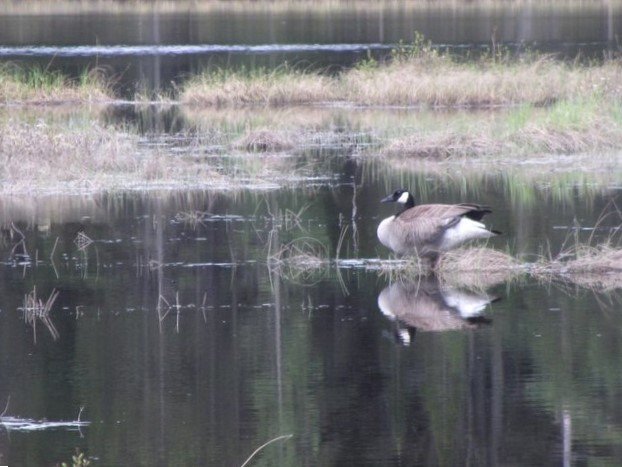
CANCID Webinar: Tile Drainage, and Tile Drainage Management Influences on Groundwater and Surface Water
Tile drainage management is considered a beneficial management practice (BMP) for reducing nutrient loads in surface water. Research has shown that controlling tile discharge via control structures with adjustable stop gates can be very effective for reducing tile discharge volume, and that on an annualized basis there is often a reduction in nutrient losses that is proportional to the reduction in discharge. However, the influence of controlled drainage on groundwater resources is rarely considered. In this presentation we will discuss tile drainage experiments that were conducted in Ontario, Canada, that were designed to assess the influence of drainage management on the movement of nutrients and chemical tracers to surface water and groundwater under controlled (CD) and free drainage (FD) tile management. We will also present results from 2-dimensional dual-permeability modeling that was conducted to help develop a better understanding of the flow and transport processes within the soil profile and shallow groundwater system under different drainage management scenarios. Results from the modeling demonstrate that dominant flow and transport characteristics at the field site were successfully replicated, including higher, more continuous tile discharge and lower peak tracer concentrations in FD tile effluent; as compared to CD, where discharge was intermittent but peak concentrations were higher. Explicit representation of preferential flow in the modeling work was essential, as macropores were shown to transmit > 98 % of surface infiltration, tile flow, and tile nutrient loads for both FD and CD. Results show that while CD can reduce tile discharge and soluble nutrient loads and concentrations in tile effluent and hence surface water receptors, it can also promote NO3 loading into groundwater.

Intro to HydroGeoSphere Training Session - February 2025
This online training session is free to attend!
Note: all event times are in eastern (EST/EDT)
Join Brayden McNeill, Aquanty’s Technical Sales Leader, for a 3-4 hour introductory training session to cover essential HydroGeoSphere topics such as:
The basic HGS workflow (i.e. using grok.exe, phgs.exe, hsplot.exe)
Review of model input/output files
The essential components of a *.grok file, how to structure your model inputs
Using AlgoMesh to generate your model grids/mesh
Visualizing results using TecPlot and/or ParaView
Introduce various resources to help you learn to use HGS
e.g. using the Reference Manual, HGS User Community, and other resources to your advantage.
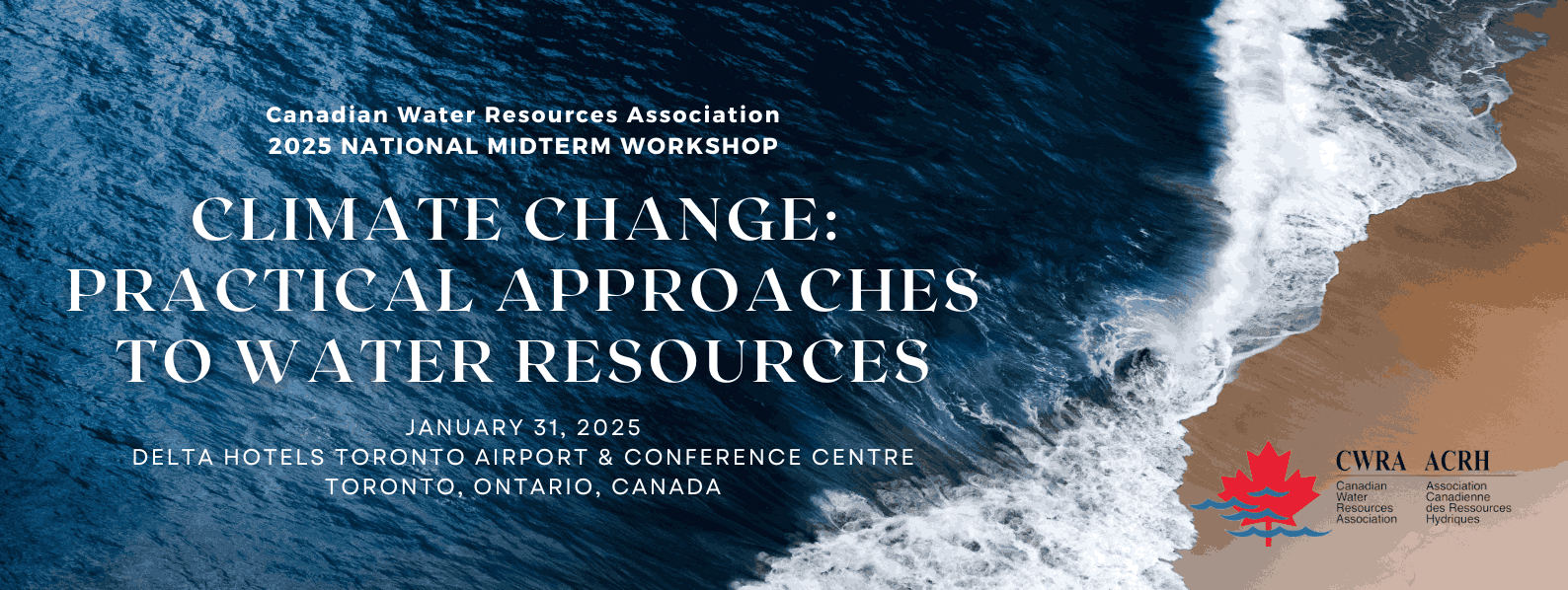
CWRA WORKSHOP ON CLIMATE CHANGE: PRACTICAL APPROACHES TO WATER RESOURCES
The CWRA Ontario Conference, themed Climate Change: Practical Approaches to Water Resources, will bring together professionals to explore innovative solutions and strategies for addressing the impacts of climate change on water resources.
DATE: Friday, January 31, 2025, 8:00 AM – 4:30 PM ET
LOCATION: Delta Hotels Toronto Airport & Conference Centre, Toronto, Ontario, Canada
Hosted by the CWRA Ontario Board, this event offers a dynamic program featuring presentations on cutting-edge research, case studies, and technical solutions to tackle climate extremes, enhance natural asset management, and develop adaptation and mitigation strategies.
Visit the conference website by clicking the links below, and discover the full speaker list, and registration details.
FOR MORE INFORMATION:
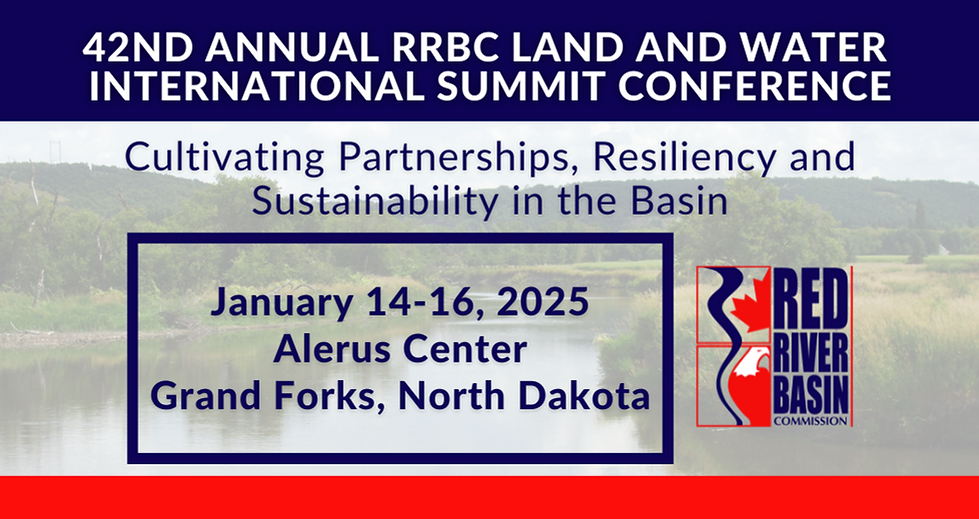
Red River Basin Watershed District Conference 2025
The 42nd annual Red River Basin Land and Water International Conference will be focusing on the innovations required to manage the unprecedented environmental changes facing our watersheds.
DATE: JANUARY 14-16, 2025
LOCATION: ALERUS CENTER, GRAND FORKS, NORTH DAKOTA
The conference provides an opportunity for watershed district staff and board members to engage with industry professionals, decision makers, businesses, and each other. It provides a place for celebrating successes, community building, staying connected to new and emerging practices, education, and advocacy for the protection of our water resources.
Visit the conference website by clicking the links below, and discover the full speaker list, and registration details.
FOR MORE INFORMATION:

Intro to HydroGeoSphere Training Session - January 2025
This online training session is free to attend!
Note: all event times are in eastern (EST/EDT)
Join Brayden McNeill, Aquanty’s Technical Sales Leader, for a 3-4 hour introductory training session to cover essential HydroGeoSphere topics such as:
The basic HGS workflow (i.e. using grok.exe, phgs.exe, hsplot.exe)
Review of model input/output files
The essential components of a *.grok file, how to structure your model inputs
Using AlgoMesh to generate your model grids/mesh
Visualizing results using TecPlot and/or ParaView
Introduce various resources to help you learn to use HGS
e.g. using the Reference Manual, HGS User Community, and other resources to your advantage.

CANCID: International Committee on Irrigation and Drainage- A History and Outlook
The International Committee on Irrigation and Drainage (ICID) was established as a not-for-profit organization in New Delhi, India, in 1950 by founding members Brazil, Egypt, India, Indonesia, Italy, Netherlands, Serbia (former Yugoslavia), Sri Lanka, Switzerland, Thailand and Turkey to encourage the global development of science and techniques around irrigated agriculture.

Intro to HydroGeoSphere Training Session - December 2024
This online training session is free to attend!
Note: all event times are in eastern (EST/EDT)
Join Brayden McNeill, Aquanty’s Technical Sales Leader, for a 3-4 hour introductory training session to cover essential HydroGeoSphere topics such as:
The basic HGS workflow (i.e. using grok.exe, phgs.exe, hsplot.exe)
Review of model input/output files
The essential components of a *.grok file, how to structure your model inputs
Using AlgoMesh to generate your model grids/mesh
Visualizing results using TecPlot and/or ParaView
Introduce various resources to help you learn to use HGS
e.g. using the Reference Manual, HGS User Community, and other resources to your advantage.
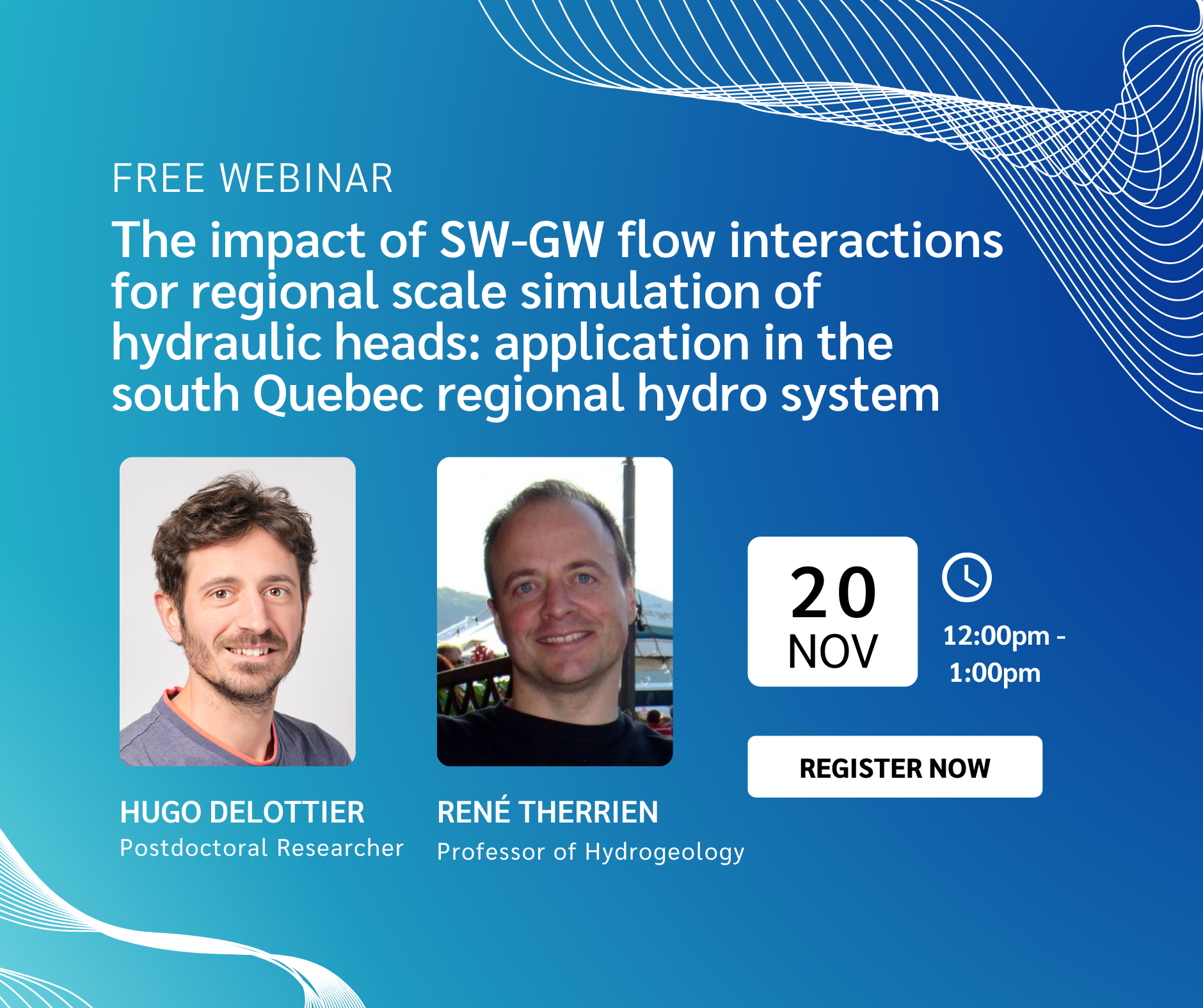
Webinar - The impact of SW-GW flow interactions for regional scale simulation of hydraulic heads: application in the south Quebec regional hydro system
Join us for an enlightening webinar as we dive into how the interaction between surface water (SW) and groundwater (GW) affects the accuracy of regional-scale simulations of water table elevations in Southern Quebec.

Intro to HydroGeoSphere Training Session - November 2024
This online training session is free to attend!
Note: all event times are in eastern (EST/EDT)
Join Brayden McNeill, Aquanty’s Technical Sales Leader, for a 3-4 hour introductory training session to cover essential HydroGeoSphere topics such as:
The basic HGS workflow (i.e. using grok.exe, phgs.exe, hsplot.exe)
Review of model input/output files
The essential components of a *.grok file, how to structure your model inputs
Using AlgoMesh to generate your model grids/mesh
Visualizing results using TecPlot and/or ParaView
Introduce various resources to help you learn to use HGS
e.g. using the Reference Manual, HGS User Community, and other resources to your advantage.
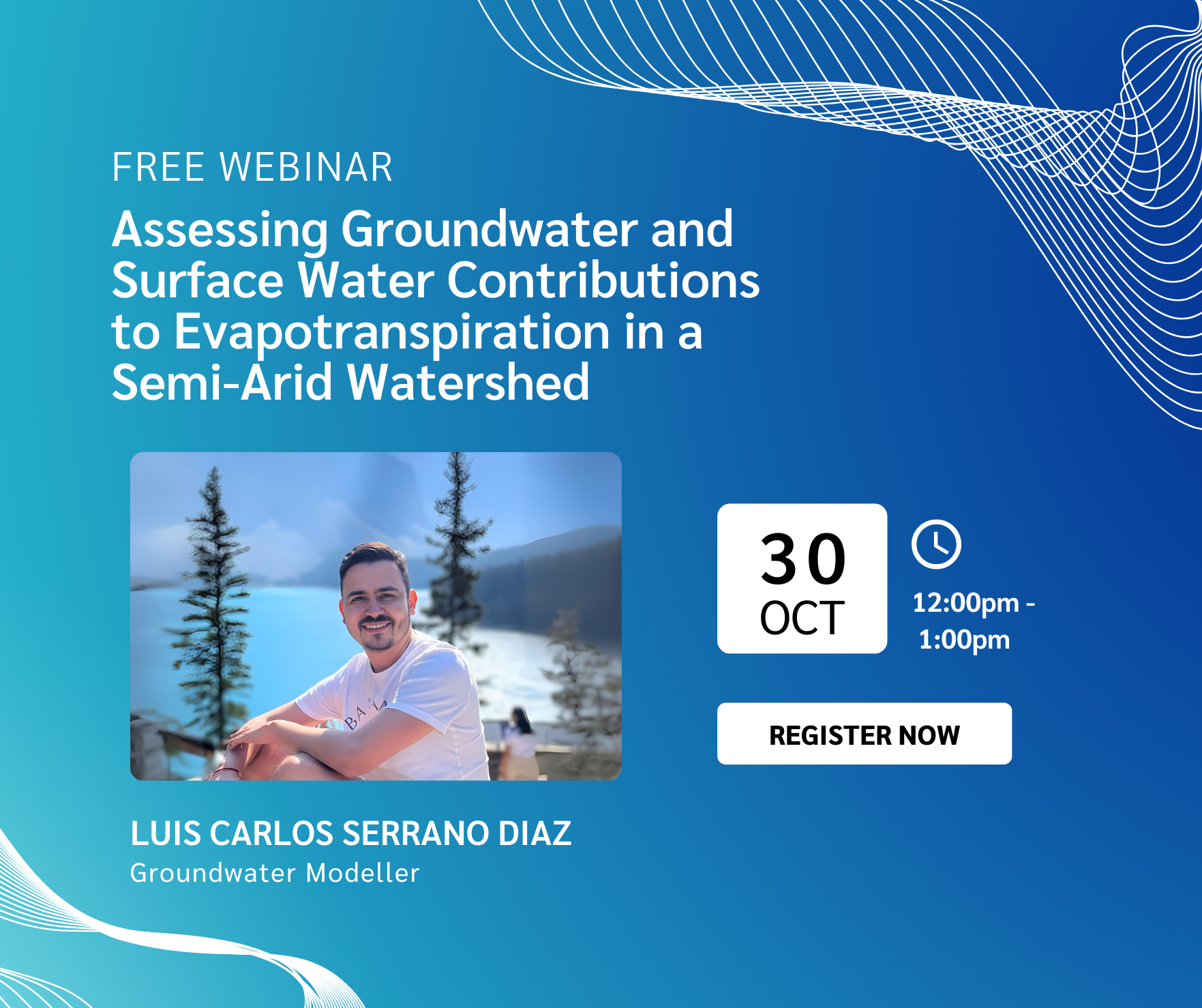
Webinar - Assessing Groundwater and Surface Water Contributions to Evapotranspiration in a Semi-Arid Watershed
Join us for an enlightening webinar as we explore how actual evapotranspiration (AET) dynamics in the North Saskatchewan River Basin are influenced by groundwater (GWET) and surface water (SWET) contributions. Discover the implications of climate change on water balance in semi-arid regions and gain insights from our HydroGeoSphere model findings.
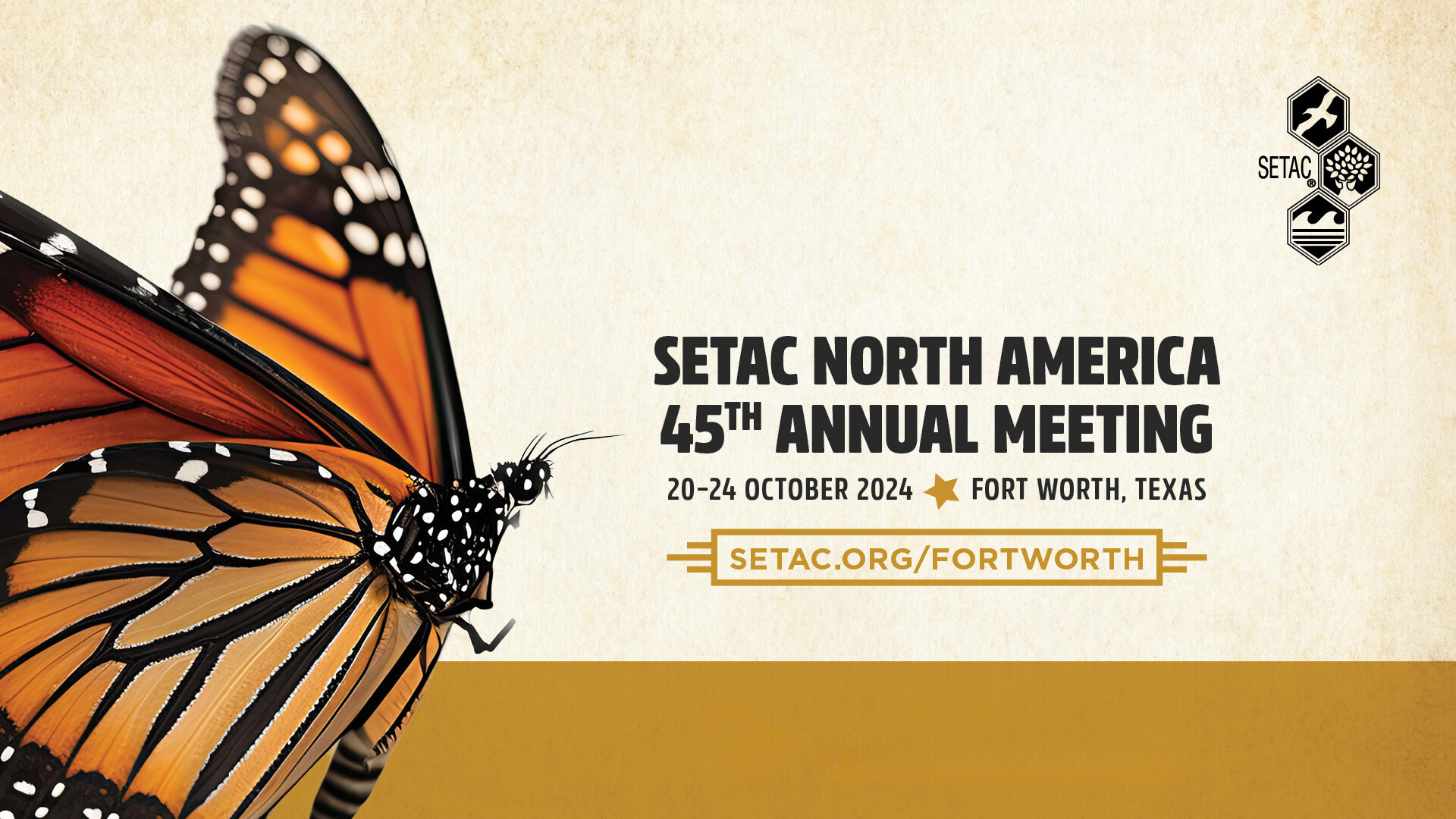
SETAC North America 45th Annual Meeting
SETAC is dedicated to advancing environmental science and science-informed decision-making through collaboration, communication, education and leadership. Mark your calendars for October 20-24, 2024, as Michael V. Callaghana and Brayden McNeil visit SETAC- visit the conference website by clicking the links below, and discover the full speaker list, and registration details.

Intro to HydroGeoSphere Training Session - October 2024
This online training session is free to attend!
Note: all event times are in eastern (EST/EDT)
Join Brayden McNeill, Aquanty’s Technical Sales Leader, for a 3-4 hour introductory training session to cover essential HydroGeoSphere topics such as:
The basic HGS workflow (i.e. using grok.exe, phgs.exe, hsplot.exe)
Review of model input/output files
The essential components of a *.grok file, how to structure your model inputs
Using AlgoMesh to generate your model grids/mesh
Visualizing results using TecPlot and/or ParaView
Introduce various resources to help you learn to use HGS
e.g. using the Reference Manual, HGS User Community, and other resources to your advantage.

Intro to HydroGeoSphere Training Session - October 2024
This online training session is free to attend!
Note: all event times are in eastern (EST/EDT)
Join Brayden McNeill, Aquanty’s Technical Sales Leader, for a 3-4 hour introductory training session to cover essential HydroGeoSphere topics such as:
The basic HGS workflow (i.e. using grok.exe, phgs.exe, hsplot.exe)
Review of model input/output files
The essential components of a *.grok file, how to structure your model inputs
Using AlgoMesh to generate your model grids/mesh
Visualizing results using TecPlot and/or ParaView
Introduce various resources to help you learn to use HGS
e.g. using the Reference Manual, HGS User Community, and other resources to your advantage.

GeoMontréal 2024
Discover the Future of Geosciences at GeoMontréal 2024!
The Canadian Geotechnical Society (CGS), in collaboration with the Canadian National Chapter of the International Association of Hydrogeologists (IAH-CNC), proudly presents GeoMontréal 2024!
Mark your calendars for September 15-18, 2024, as the CGS, in collaboration with the IAH-CNC, are hosting their 77th Canadian Geotechnical Conference and the 16th Joint CGS/IAH-CNC Groundwater Conference, GeoMontréal 2024.
Visit the conference website by clicking the links below, and discover the full speaker list, and registration details.
FOR MORE INFORMATION:

Intro to HydroGeoSphere Training Session - September 2024
This online training session is free to attend!
Note: all event times are in eastern (EST/EDT)
Join Brayden McNeill, Aquanty’s Technical Sales Leader, for a 3-4 hour introductory training session to cover essential HydroGeoSphere topics such as:
The basic HGS workflow (i.e. using grok.exe, phgs.exe, hsplot.exe)
Review of model input/output files
The essential components of a *.grok file, how to structure your model inputs
Using AlgoMesh to generate your model grids/mesh
Visualizing results using TecPlot and/or ParaView
Introduce various resources to help you learn to use HGS
e.g. using the Reference Manual, HGS User Community, and other resources to your advantage.

Integrated Hydrologic Modelling with HydroGeoSphere - Short Course 2024
This 3-day short course is being held as a hybrid event (online and in-person).
Note: all event times are in eastern (EST/EDT)
Click here to request details and register.
Join the Aquanty team for a 3-day intensive course which explores the complete integrated hydrologic modelling process using HydroGeoSphere (HGS). This course consists of various lectures and exercises to explore topics such as the benefits of integrated hydrologic modelling, the governing equations that control flow in an HGS model, model mesh generation and results visualization, numerical solution techniques and model convergence troubleshooting, atmospheric & winter processes, model calibration and more.
Attendees of this course will receive a temporary license of HydroGeoSphere (30-day), a temporary license of AlgoMesh (2-week), a copy of all course content including lectures (PDF) and exercises, and the opportunity to network with other HydroGeoSphere users and the software development team. In addition, attendees of the training course will be eligible for a 10% discount on the purchase of their first HydroGeoSphere software license (eligible within 12-months of the training session).
Registration fee: $1,200 USD (50% discount for students)
Location: Online & in-person at Aquanty’s office (600 Weber St. N., Unit B, Waterloo, ON N2K1K4)
Date/Time: October 8-10th, from 9am - 5pm EST daily
NOTE: a minimum of 5 attendees are required for this event to take place. If the minimum attendance requirement is not met a full refund will be issued for cancellation.
THE TRAINING COURSE WILL EXPLORE THE FOLLOWING TOPICS:
Intro to Integrated Hydrologic Modelling
Benefits of integrated modelling
HydroGeoSphere features/capabilities
Example applications
The Governing Equations that Power HGS
Variably saturated groundwater flow, surface runoff flow, 1D hydraulic features, flow coupling, solute transport, etc.
The HydroGeoSphere Workflow
Using executables (i.e. using grok.exe, phgs.exe, hsplot.exe)
Building your model *.grok file
Review of model input/output files
Data management/best practices
AlgoMesh and Constructing Triangular Finite Element Meshes
Tecplot/ParaView and Visualizing Model Results
Numerical Solution Techniques and Model Convergence Troubleshooting
CVFE, CVFD solution methods, adaptive timestepping, parallel processing, interpreting model runtime output, optimizing simulation performance, etc.
Introduction to Atmospheric and Winter Processes
Evapotranpiration, snowmelt, pore-water freeze/thaw, time varying material properties, etc.
Advanced Applications and Techniques
Solute transport, density-dependent flow, fracture flow, model calibration, integrating HGS with PEST for parameter estimation, etc.

IGC 2024 - 37th Annual Conference of the International Geological Congress
There will be many opportunities to connect with Aquanty at this conference. Join Brayden McNeill at our booth for a demonstration of Aquanty’s real-time hydrologic forecasting system (HGSRT) or to learn more about the Canada1Water project.
Or you can connect with Dr. Steve Berg and Dr. Hyoun-Tae Hwang at the session that we are hosting on Groundwater Surface Water Interactions.
Finally, you’ll have a chance to learn more about HydroGeoSphere at our short-course preceding the conference. Details below!
Session Information - Groundwater and surface water interactions
Session #: T18-Session 6
Conveners: Dr. Steve Berg and Dr. Hyoun-Tae Hwang
Keynote Speaker: Dr. Rene Therrien
Description:
Groundwater-surface water (GW-SW) interactions are generally considered as water, solute, or heat exchanges between groundwater and surface water systems. Groundwater discharges into rivers and lakes and sustains ecosystems by regulating the water cycle. On the other hand, surface water also affects groundwater system through a recharge process. Therefore, from the hydrological perspective, groundwater and surface water are a single resource and managing this resource requires an understanding of how these systems interact. As a single resource, understanding interactions between groundwater and surface water has been significantly important for water quantity and quality management, including flood and drought controls, contamination risk mitigation, and biological and ecological system sustainability and assessment. Considering the importance of GW-SW interactions, there are growing studies on the spatiotemporal dynamics of GW-SW interactions because of requiring multidisciplinary understanding across social, political, and scientific communities. This session aims to bring together researchers, practitioners and stakeholders in the fields of water resources and to introduce and discuss current advancements in understanding GW-SW interaction dynamics including water flow, solute and heat transport, and eco-hydrological processes from theoretical aspects, field and laboratory experiments/observations, and numerical and analytical modelling.
HydroGeoSphere Short Course: Introduction to Fully-Integrated Hydrologic Modelling
Presenters: Dr. Hyoun-Tae Hwang
Course Assistance: Dr. Steve Berg and Brayden McNeill
Course Duration: 2 days
Description:
Tackling problems of water quantity and quality increasingly requires the simulation and quantification of complex flow and transport processes in coupled surface-subsurface systems. Over the last 15 years, HydroGeoSphere (HGS) has become available to address those types of problems. This 3-day HGS short course will be held at BEXCO, Busan, South Korea from the 23 to 24 of August 2024. The two-day short course will include three sessions: surface and groundwater modelling theories, basic tutorials for HGS operation, and advanced modelling techniques. These sessions will cover modelling techniques for solving commonly encountered advanced groundwater flow and contaminant transport problems in the real world. Participants will learn how to apply HGS to their own research or industrial projects through a combination of presentations and hand-on practices. The topics covered include: theoretical background of groundwater-surface water flow and contaminant transport (mathematical formulation and numerical approaches); hands-on simulation exercises (data preparation, mesh generation, HGS operation, calibration, visualization, and result interpretation); cost-effective computing skills (parallel computing utilities, characteristics of nonlinear problems, and effective mesh generation). Session 1. Surface and Groundwater Modelling: Theories and Real-World Applications. This session covers basic theories of surface and groundwater modelling implemented into HGS, including the development of conceptual models, a review of model parameterization/data requirements, and the application of boundary conditions. Modelling techniques related to groundwater systems will also be introduced in this session. Additionally, we will introduce the latest research and developments in fully integrated simulation of hydrosystems from the HGS team and user community, and potential applications for the HGS integrated modelling platform. Session 2. HGS Basics. This module covers basic skills for operating HGS from software installs to simulation output visualizations. All participants will practice how to construct conceptual models, setup boundary conditions and apply various groundwater physics such as well injection and extraction, reactive contaminant transport. Additionally, we will present efficient ways for processing datasets that are required for pre- and post-processes of HGS simulations. Session 3. Advanced HGS Modelling. This session covers important techniques for advanced simulations. Specifically, we will present how to generate quality meshes, model calibration processes and recent HGS developments for solving water resources problems. For advanced simulation examples and practices, all participants will solve several practical problem sets. Specifically, the topics of this workshop include: 1) overview of a basin-scale model and data structures, 2) detailed mesh generation, 3) 3D subsurface and 2D surface model constructions, 4) simulation parameter settings for cost-effective modelling, 5) detailed HGS-PEST operations based on the example model, 6) groundwater contribution analysis, and 7) model uncertainty analysis.
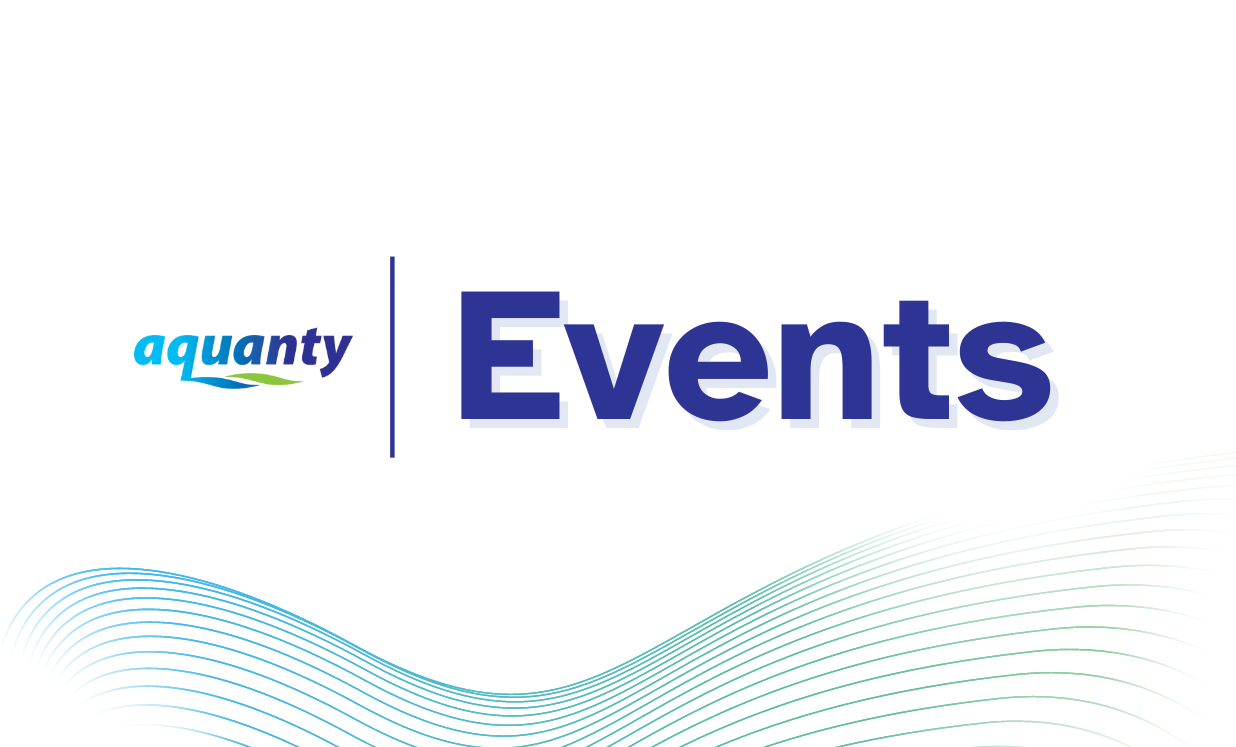
Webinar - Intro to HGS-PDAF (version 1.0)
Join us for an enlightening webinar as we dive into HGS-PDAF (version 1.0), an innovative tool for improving hydrological modeling.

Intro to HydroGeoSphere Training Session - August 2024
This online training session is free to attend!
Note: all event times are in eastern (EST/EDT)
Join Brayden McNeill, Aquanty’s Technical Sales Leader, for a 3-4 hour introductory training session to cover essential HydroGeoSphere topics such as:
The basic HGS workflow (i.e. using grok.exe, phgs.exe, hsplot.exe)
Review of model input/output files
The essential components of a *.grok file, how to structure your model inputs
Using AlgoMesh to generate your model grids/mesh
Visualizing results using TecPlot and/or ParaView
Introduce various resources to help you learn to use HGS
e.g. using the Reference Manual, HGS User Community, and other resources to your advantage.

Webinar - Physics-based hydrologic forecasting, powered by HydroGeoSphere
Join us for an enlightening webinar as we dive into the revolutionary capabilities of our physics based hydrologic forecasting platform - a cutting-edge cloud-based computing system transforming hydrological forecasting.

Intro to HydroGeoSphere Training Session - July 2024
This online training session is free to attend!
Note: all event times are in eastern (EST/EDT)
Join Brayden McNeill, Aquanty’s Technical Sales Leader, for a 3-4 hour introductory training session to cover essential HydroGeoSphere topics such as:
The basic HGS workflow (i.e. using grok.exe, phgs.exe, hsplot.exe)
Review of model input/output files
The essential components of a *.grok file, how to structure your model inputs
Using AlgoMesh to generate your model grids/mesh
Visualizing results using TecPlot and/or ParaView
Introduce various resources to help you learn to use HGS
e.g. using the Reference Manual, HGS User Community, and other resources to your advantage.
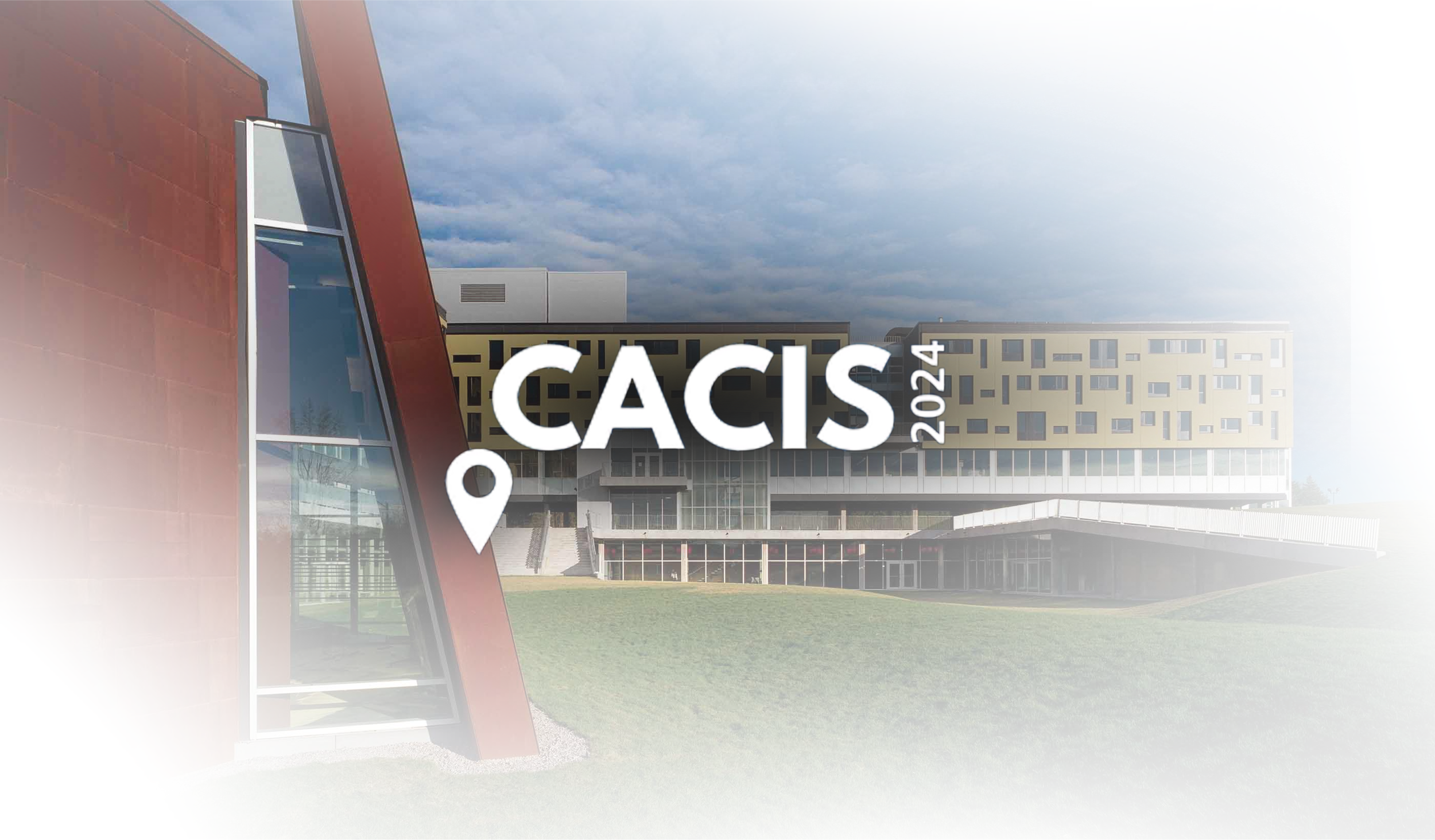
The Conservation Authority Collaborative Information Sessions (CACIS)
Join us to learn about Aquanty’s hydrologic forecasting system, which produces short- and long-term predictions of streamflow rates and groundwater levels across Ontario using numerical and AI-based models. This talk will explore some of the complexities of forecast automation, from model construction to weather data processing, sensor data integration, and forecast dissemination. The audience will learn the steps involved to set up a real-time forecasting model for their region and integrate the predictions within their existing computer systems.
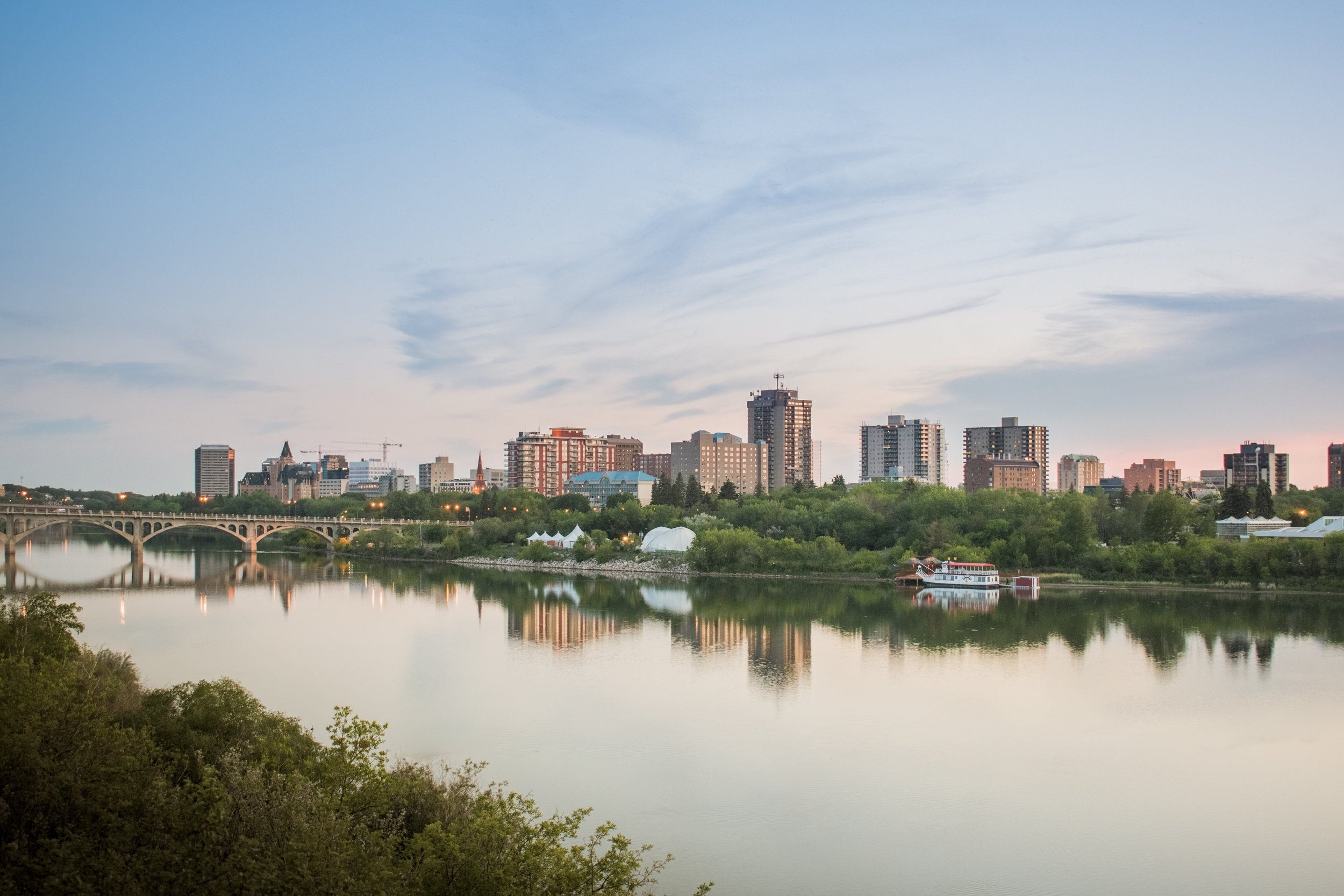
CWRA 2024 Saskatoon National Conference
Registration for CWRA 2024 National Conference is now open!
Explore the Future of Water Management at CWRA 2024 Saskatoon National Conference.
Mark your calendars for June 17-19, 2024, as the Canadian Water Resources Association (CWRA) has its highly anticipated national conference in Saskatoon. This event brings together leading experts and professionals in the field of water resources to explore innovative solutions, share best practices, and address pressing challenges facing water management in 2024.
Visit the conference website by clicking the links below, and discover the full agenda highlights, and registration details. See you in Saskatoon!
CONFERENCE REGISTRATION:
https://conference.cwra.org/registration/
FOR MORE INFORMATION:

Intro to HydroGeoSphere Training Session - June 2024
Mak
This online training session is free to attend!
Note: all event times are in eastern (EST/EDT)
Join Brayden McNeill, Aquanty’s Technical Sales Leader, for a 3-4 hour introductory training session to cover essential HydroGeoSphere topics such as:
The basic HGS workflow (i.e. using grok.exe, phgs.exe, hsplot.exe)
Review of model input/output files
The essential components of a *.grok file, how to structure your model inputs
Using AlgoMesh to generate your model grids/mesh
Visualizing results using TecPlot and/or ParaView
Introduce various resources to help you learn to use HGS
e.g. using the Reference Manual, HGS User Community, and other resources to your advantage.
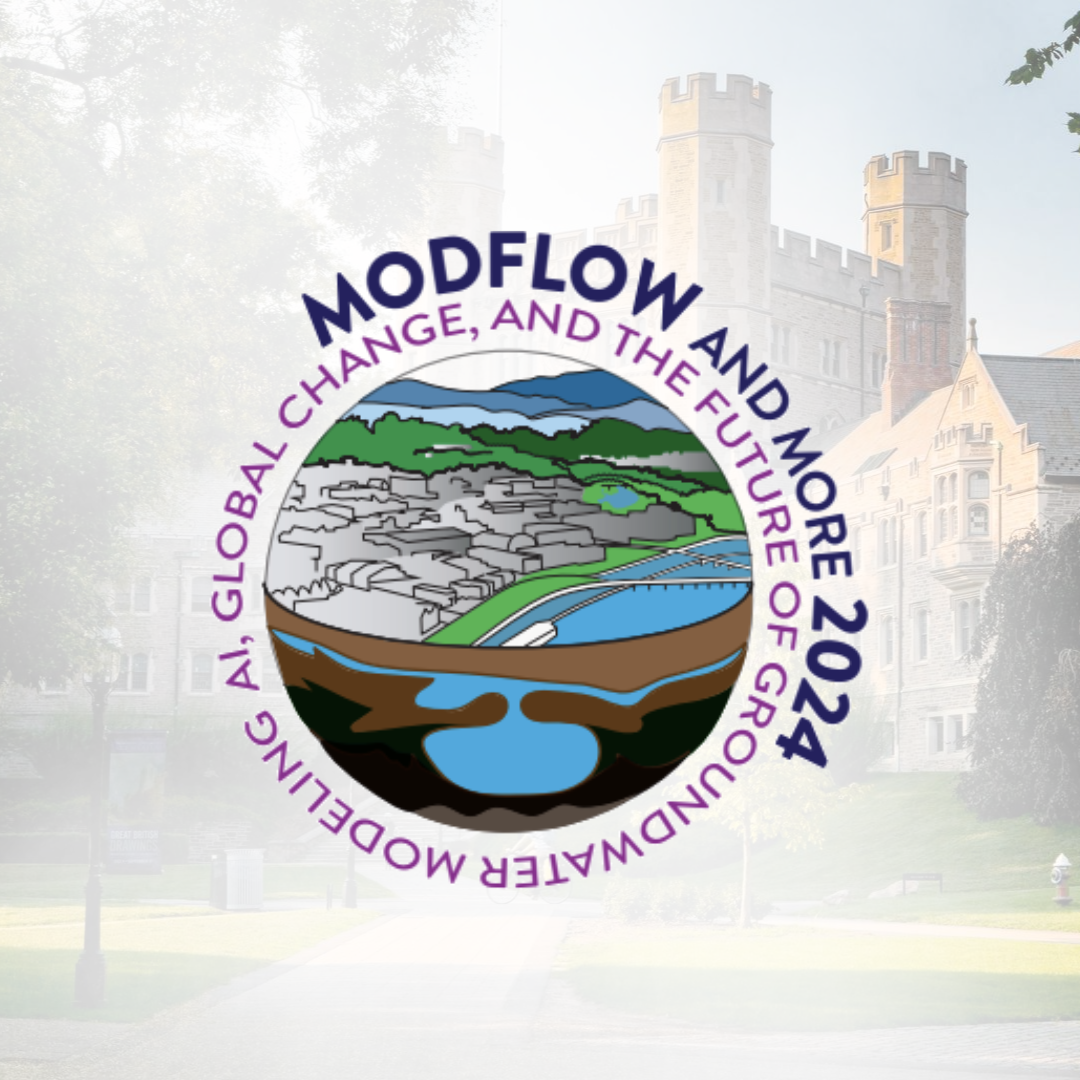
MODFLOW and More 2024
Conference Registration for MODFLOW and More 2024 “Hydrologic Modeling in a Changing World” is now open!
The 10th rendition of the MODFLOW-and-More (MF&M) conference convened in 2022 at Princeton University and was a great success, and Princeton is again the home for the 2024 conference.
The MF&M conference series has provided a vibrant forum for researchers, developers, practitioners, and regulators in the groundwater modeling community to convene, share experiences, and propagate ideas. Approaching the 2024 conference, groundwater has taken center-stage, and attendees will witness in-person presentations on wide-ranging topics and engage with leaders in the groundwater modeling community in the awe-inspiring surroundings of Princeton University.
For more event details, visit the links below:
CONFERENCE REGISTRATION:
https://princeton.irisregistration.com/Form/MODFLOW24
ABSTRACT SUBMISSION:
https://event.fourwaves.com/modflow2024/pages
FOR MORE INFORMATION:
https://igwmc.princeton.edu/modflow/
Or you can contact igwmc@princeton.edu with any questions.

IAGLR 2024 - Shared Lakes: One Water, One Health
Researchers from around the world will gather in Windsor for the 67th Annual Conference on Great Lakes Research—the fifth time we've gathered in this central location along the Detroit River, or Waawiyaataanong Ziibi , known as "where the river bends" in Anishnaabemowin. A great program is in store with four days of scientific sessions and speakers centered around our theme Shared Lakes: One Water, One Health. This focus will offer a unique opportunity for both the science and local communities to share about the health of the Great Lakes and will highlight the intersections between environmental and public health in the context of large lakes, often shared across borders, and the communities impacted by them.
Join Brayden McNeill at our booth for a demonstration of Aquanty’s real-time hydrologic forecasting system (HGSRT) or to learn more about the Canada1Water project. We also expect to be delivering a presentation during session #5 (“Smarter Lakes are Better Lakes: Creating an Ecosystem of Digitally Connected Fresh Water”).
Title: HGSRT: Connecting streams, lakes, and groundwater in real time and on the web
Abstract: Aquanty staff present HydroGeoSphere Real-Time (HGSRT), a digital web application for disseminating near-real-time hydrologic forecasts based on HydroGeoSphere, a fully integrated hydrologic modeling system that simulates the entire terrestrial water cycle. Three-dimensional physics-based models were built using HydroGeoSphere for twelve ~5000 km2 watersheds in Southern Ontario, each draining into the Great Lakes. These models are being run in near-real-time with weather forecast data and IOT sensor data, providing digital twins of the watersheds. With state-of-the-art fully integrated models under the hood, the HGSRT forecasts can confer up-to-date insights into physical processes such as streamflow, groundwater, soil moisture, recharge/discharge, and reservoir conditions. The web application is responsive and allows for water managers to monitor conditions on-the-go, including in ungauged areas. Recent developments and exciting new opportunities will be presented including water quality forecasting, quantifying forecast skill, and the development of a continental scale, open-source data framework to enable HGSRT deployment throughout the Great Lakes basin.

Intro to HydroGeoSphere Training Session - May 2024
This online training session is free to attend!
Note: all event times are in eastern (EST/EDT)
Join Brayden McNeill, Aquanty’s Technical Sales Leader, for a 3-4 hour introductory training session to cover essential HydroGeoSphere topics such as:
The basic HGS workflow (i.e. using grok.exe, phgs.exe, hsplot.exe)
Review of model input/output files
The essential components of a *.grok file, how to structure your model inputs
Using AlgoMesh to generate your model grids/mesh
Visualizing results using TecPlot and/or ParaView
Introduce various resources to help you learn to use HGS
e.g. using the Reference Manual, HGS User Community, and other resources to your advantage.
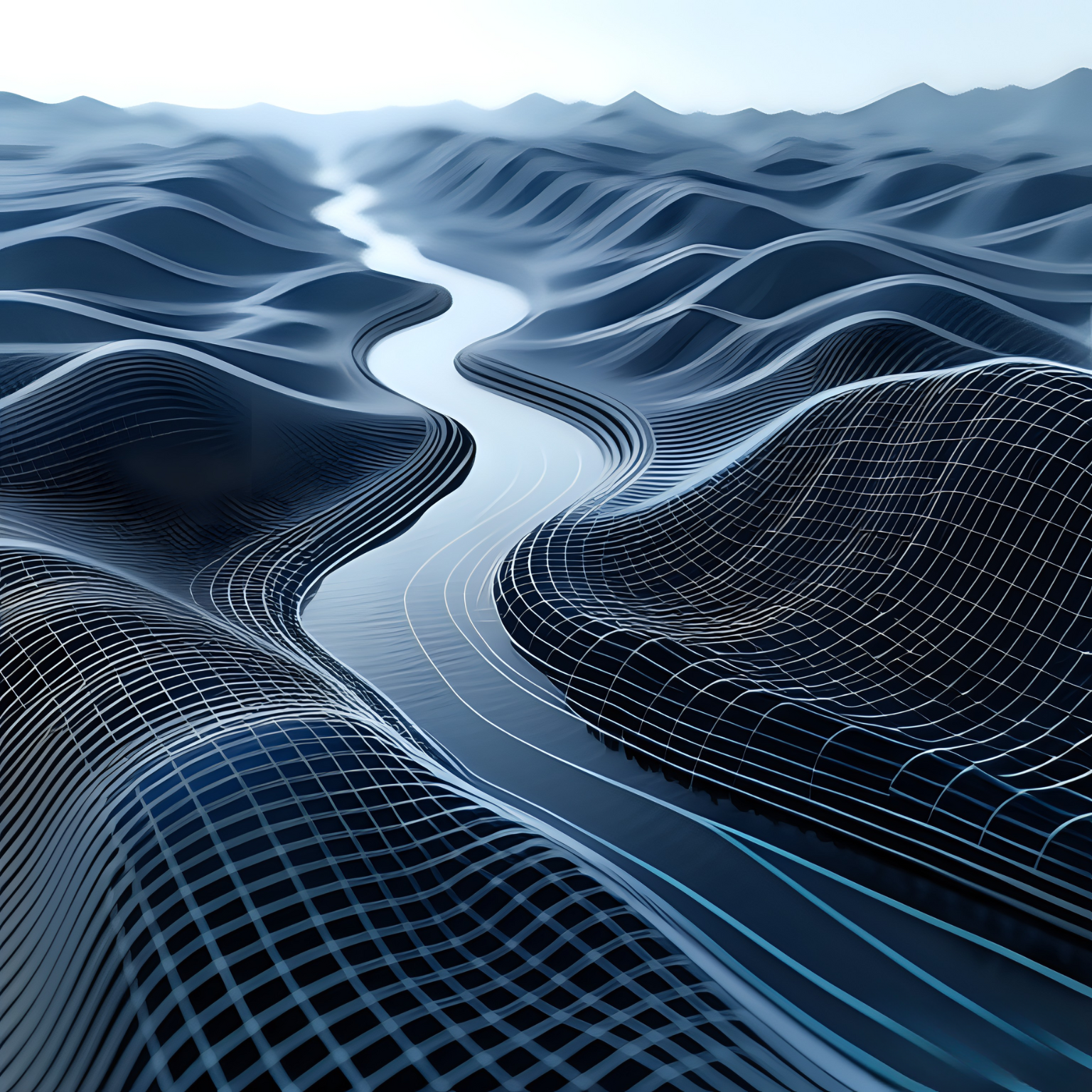
Machine Learning for Flood and Drought Forecasting
Floods and droughts are the costliest natural disasters in Canada, but impacts on live and livelyhoods can be mitigated with sufficient warning. Currently, flood and drought forecasting is done by govenment agencies and primarily based on semi-empirical hydrological models. This presentation will start with a brief review of current hydrological forecasting methods and their limitations, before introducing a new machine learning approach to streamflow forecasting that has received significant attention in the scientific literature for its versatilty and high forecast skill. We will outline what enabled the success of this new approach and why it yields superior skill to previous methods, in particular in ungauged watersheds (which has been a long-standing challenge in hydrology). Finally, the challenges of operational implementation of this method as a forecasting service will be discussed, using Aquanty's real-time hydrological forecasting platform as an example. Such challenges include real-time processing of numerical weather forecasts, availability of input data, and aspects of stakeholder engagement and gaining trust with the end-user.
